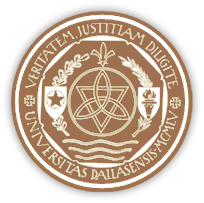Knowing Dr. Louise Cowan is integral to knowing the Institute of Philosophic Studies program at the University of Dallas. At its inception, the program sought to embrace–and due in large part to Dr. Cowan’s contributions, continues to embrace–both politics and literature. The idea was that a serious study of politics and of literature was essential to understanding the human condition. Only through a study of politics, and the study of men, can one understand what Aristotle calls man’s architectonic art. But only through the study of literature, and the study of man, can one understand the workings of the human soul. Yet Aristotle, for all his praise of man’s great achievements of the city, understood that good could only be achieved in the city if the several souls within its compass were properly ordered toward the good. Dr. Cowan’s approach to literature ensured that the IPS program paid heed not only to the colossal political questions that seem most pressing, but also to the questions about the human soul that make men capable of pursuing any political good. Her stewardship of literature at the University of Dallas is largely responsible for the IPS program’s continued dedication to producing students who understand what it means to be human in the fullest sense.
Yet, Dr. Cowan’s kernels of wheat—to borrow a phrase from Dostoevesky, who borrowed from the Apostle John—fell and flourished even outside of the university. In 1983 she founded the Teachers’ Academy at the Dallas Institute for Humanities, which still provides a rigorous approach to the great books for high school teachers today. The National Endowment for the Humanities called her efforts “a model for the nation.” For her work she received the Charles Frankel Prize in 1991. Our second issue of Symposium aims at celebrating Dr. Louise Cowan’s contributions to the University of Dallas and to the study of the humanities.
Our celebration of Dr. Cowan’s work begins with perhaps her greatest contribution to the study of literature: her genre theory. The first essay is written by Dr. Bainard Cowan, chair of the English department at the University of Dallas. Dr. Cowan argues that for Louise, “form was a central concept... she sought to clarify the concept and its importance.” In the piece, Dr. Cowan shows that Louise’s theory of literary form distinguished between mechanical and organic form. In his essay, Dr. Cowan quotes a lecture given by Louise and preserved by the Cowan Archives, wherein she claims that organic form is that “by which all the great poets have written... this concept Plato and Aristotle held and that shaped the imagination of the Western world... that Coleridge and Keats espoused, that the Southern critics explored, and that Maritain develops.” Dr. Cowan remarks that the lecture, and Louise’s approach, highlighted that the great poets “may be connected through the millennia by means of the concept of form.”
The second essay of Symposium II is the adaptation of a lecture given at the University of Dallas by Glenn Arbery of Wyoming Catholic College. Where Dr. Bainard Cowan’s essay seeks to espouse Louise Cowan’s theory of form, Dr. Arbery shows us what studying form with Louise entailed. He says, “Dr. Cowan’s literary approach was total immersion. We read comedy after comedy until the nature of the genre began to emerge less as a set of characteristics than as an intuition constituted of many experiences—a kind of critical insight whose moral analogy might be Aristotelian phronesis.” Understanding Dr. Cowan’s method through Dr. Arbery’s essay lays plain what Louise meant when she emphasized an organic approach to form as opposed to a mechanical one, and ultimately the difference between a superficial study of poetry and a serious one. For Louise, the study of poetry through the lens of form was not a mere matter of identifying the phylum within which each poem was to be classed, but rather it was a window into the movement of the poem itself which provided insight into poetry as a literary art. Dr. Arbery claims that her approach “was like staying in Tuscany or Wyoming or South Boston long enough to have a variety of experiences so that the nature of that place could mean something in judging, sometimes prejudging, individual character.”
The third essay of the collection is written by Joshua Skinner. Skinner’s essay provides insight into a very specific kind of comedic poetry: infernal comedy. In his essay he analyzes Machiavelli’s Mandragola as an example of an infernal comedy which “illustrates the movement from disorder, from the infernal, towards the hope of happiness through an inversion of allusions.” In his piece, Skinner shows an essential aspect of the comedy by exploring the comic hero as presented by Dr. Cowan in her study of poetic form. Quoting her, he writes, “Like the hen-pecked devil in Machiavelli’s Belfagor, and like so many such out-witted devils of folklore, Messer Nicia must be outwitted by the comic hero, ‘willing to climb, drag, or hoist himself into [a better world] by the strength of his hope and his yearning.’”
The fourth essay of the collection is written by Dr. Amber Dyer. In her essay, she also explores what it means to be a hero through a study of Dostoevsky’s The Idiot. She cites a letter by Dostoevsky and argues that the author’s initial idea for Myshkin was the creation of a “beautiful person.” Yet, Dyer explores a theme similar to Skinner in his essay: “How did Dostoevsky’s initial idea of the “beautiful person” result in such profound darkness in the final text?” While some have taken Myshkin’s beauty and fate as Christ-like, Dyer argues, “the tragic outcomes of those characters in the novel deeply influenced by Myshkin call into question the certainty of the Myshkin-Christ theory.” Her essay explores how the hero Myshkin might best be understood.
The penultimate essay in Symposium II is written by Dr. Kathleen Kelly Marks. In her essay she analyzes one of Dr. Cowan’s favorite poems, John Donne’s “The Canonization.” Her analysis seeks to draw together the contradictions of the poem in order to grasp Dr. Cowan’s understanding of the lyric genre. Dr. Marks follows Louise in urging that “‘The Canonization’ neither laments the loss of union nor anticipates it, but it occupies the least encountered moment of consummation, says Louise, that moment when we are in the presence of Love, and in this poem the last word in the first and final lines of each stanza is ‘love.’”
The final essay in our collection is written by Alex Taylor. In his essay he treats of Dr. Cowan’s study of Southern Agrarian Literature, and the place of the land in Southern Literature. He argues that “the idea of the land as sacramental in a complex way which deserves investigation becomes evident the more one investigates Dr. Cowan’s work on genre.” In the essay, he quotes Dr. Cowan as she explains the importance of the land to the Fugitive-Agrarians: “What they see is focused upon the symbol of the land. It is for them that body of the world which brings into concentration the entire meaning of life. Primarily the land, as symbol, is the good society; but it carries within itself by a complex set of analogies all human values.”
Writing a volume dedicated to Dr. Louise Cowan is no small task. Her work spanned the Western Canon from Homer, to Dostoevsky, to the Southern United States. While she spent considerable time developing a theory of form, she left few novels unturned in her own classroom. It may seem improbable, but despite the prolific impact she has had on literary criticism, the University of Dallas, the Dallas community, and the humanities as a whole, when one sits with her ideas it becomes evident that her words still have more to teach. We hope that our small contribution will extend the interest of those who have been touched by Louise’s teaching.
For the Editors,
Samuel Postell
The Feast of St. Philip Neri
May 26, 2021

